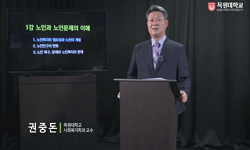Compared with other developed countries, the speed of ageing rate of Korea is unprecedentedly high. Rapid ageing society means that the old age period is delaying and the aged must prepare the provisions for their long lives, especially the needs of c...
http://chineseinput.net/에서 pinyin(병음)방식으로 중국어를 변환할 수 있습니다.
변환된 중국어를 복사하여 사용하시면 됩니다.
- 中文 을 입력하시려면 zhongwen을 입력하시고 space를누르시면됩니다.
- 北京 을 입력하시려면 beijing을 입력하시고 space를 누르시면 됩니다.
농촌노인의 케어실태와 케어욕구에 관한 연구 = A Study on the Care Conditions and Needs of the Aged in Imsil County
한글로보기부가정보
다국어 초록 (Multilingual Abstract)
However, Korean strong tradition of family support for the aged has weakened due to social changes such as urbanization and women's participation in economic activities. Therefore, the aged face the need of care and support for senility, chronic illness and income maintenance.
Meanwhile, the speed of aged rate is serious in rural areas. Some rural areas have already become the super-aged society. In addition, the aged in rural areas are very difficult to be cared by their families because their sons and daughters who have ability to support their parents had moved to the cities.
The purpose of this study was to empirically survey the family relationship and care need of the aged in rural areas, and compare it with the nationwide scale researched by the National Population and Health Institution in 2004. For the purpose, 117 old aged in Imsil County which has the highest aged rate in Jeonbuk Province were sampled and interviewed to collect informations about the family relationship and care needs of the aged for a questionnaire. On the basis of previous studies on current conditions of the aged, the questionnaire consists of 36 items.
In conclusion, this survey made clear that the aged in rural areas have substantial needs of care, but are not cared at all. The major reason is that their children are living in cities far from their parents.
Compared with other developed countries, the speed of ageing rate of Korea is unprecedentedly high. Rapid ageing society means that the old age period is delaying and the aged must prepare the provisions for their long lives, especially the needs of care.
However, Korean strong tradition of family support for the aged has weakened due to social changes such as urbanization and women's participation in economic activities. Therefore, the aged face the need of care and support for senility, chronic illness and income maintenance.
Meanwhile, the speed of aged rate is serious in rural areas. Some rural areas have already become the super-aged society. In addition, the aged in rural areas are very difficult to be cared by their families because their sons and daughters who have ability to support their parents had moved to the cities.
The purpose of this study was to empirically survey the family relationship and care need of the aged in rural areas, and compare it with the nationwide scale researched by the National Population and Health Institution in 2004. For the purpose, 117 old aged in Imsil County which has the highest aged rate in Jeonbuk Province were sampled and interviewed to collect informations about the family relationship and care needs of the aged for a questionnaire. On the basis of previous studies on current conditions of the aged, the questionnaire consists of 36 items.
In conclusion, this survey made clear that the aged in rural areas have substantial needs of care, but are not cared at all. The major reason is that their children are living in cities far from their parents.
동일학술지(권/호) 다른 논문
-
- 원광대학교 대학원
- 정은희
- 2007
-
ARCS 이론을 적용한 영어 음악 동화 학습과 자기 학습력 기르기
- 원광대학교 대학원
- 황성진
- 2007
-
- 원광대학교 대학원
- 오희정
- 2007
-
- 원광대학교 대학원
- 황옥현
- 2007




 RISS
RISS


